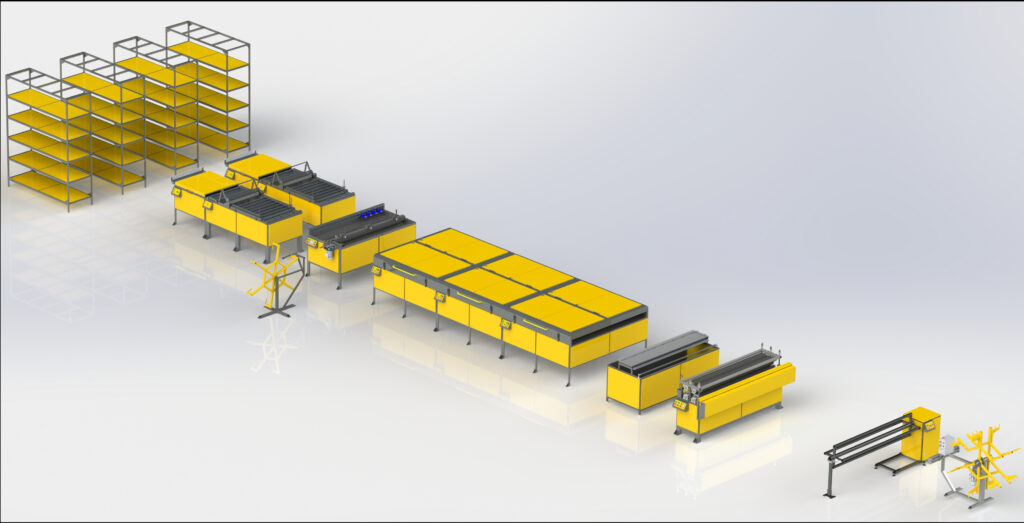La CT M ST2-6 è una macchina ad alta tecnologia progettata per la produzione di reti in fibra di vetro con larghezza fino a 2 metri e diametri delle barre fino a 6 mm, con maglie personalizzabili. Questa macchina è ideale per chi desidera avviare un'attività redditizia di produzione di reti in fibra di vetro, garantendo elevata produttività e prodotti di qualità.
Vantaggi di CT M ST2-6
Garantisce un'elevata qualità del prodotto e una produttività ottimale, rendendolo la scelta migliore per la tua attività.
La macchina consente di adattare i parametri di produzione in base alle proprie esigenze, garantendo flessibilità ed efficienza operativa.
L'impiego di tecnologie e materiali all'avanguardia garantisce la durevolezza e l'affidabilità delle apparecchiature.
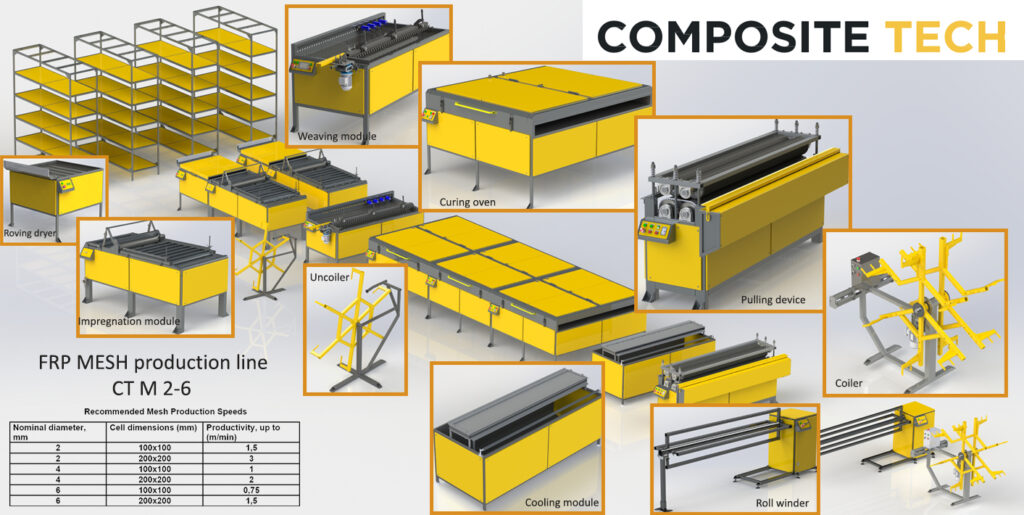
1. Cesta
- Funzione: Dispositivo per l'inserimento delle bobine di avvolgimento e la creazione della pretensione dei fili.
2. Riscaldatore rotante
- Funzione: Permette il livellamento e l'asciugatura dei fili in movimento, distribuendo uniformemente il calore.
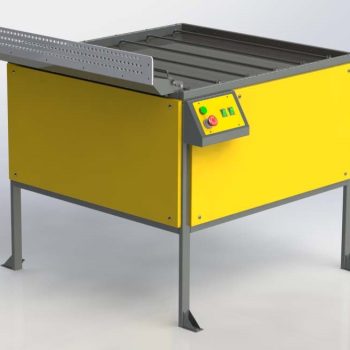
3. Modulo di impregnazione
- Funzione:Impregna i fili mobili con resina e li pressa, riducendo al minimo il consumo di polimero.
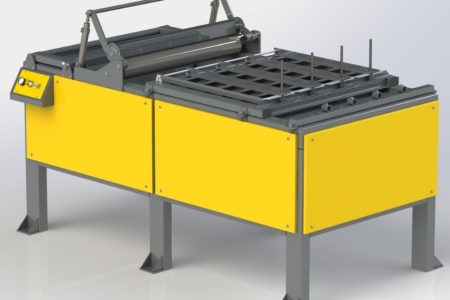
4. Modulo di tessitura
- Funzione: Esegue l'avvolgimento del profilo periodico e la tessitura delle maglie.
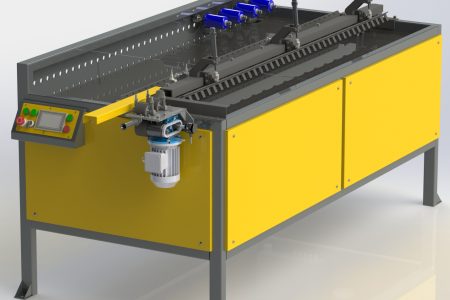
5. Forno
- Funzione: Polimerizza la resina, completando il processo di formazione della rete.
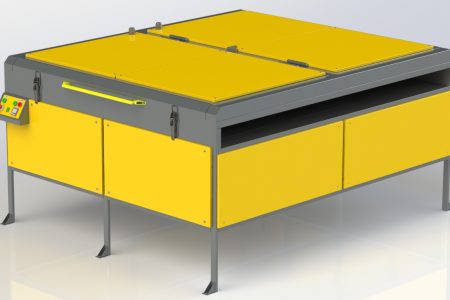
6. Modulo di raffreddamento
- Funzione: Raffredda i prodotti finiti in fibra di vetro.
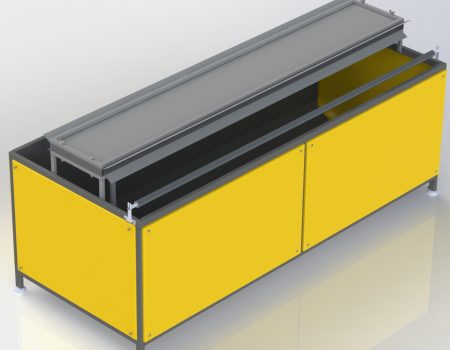
6. Dispositivo di trazione
- Funzione: Assicura la trazione e il taglio della rete.
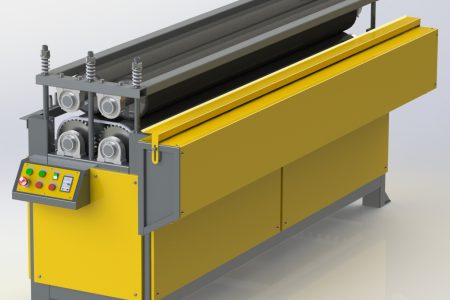
6. Avvolgitore a rulli
- Funzione: Facoltativamente, avvolge la rete finita in rotoli.
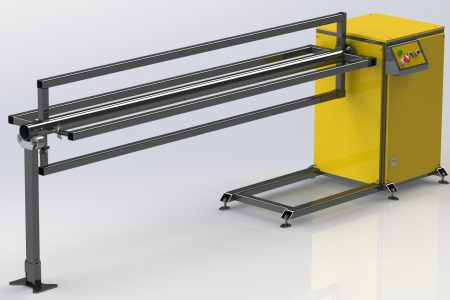
6. Avvolgitore automatico
- Funzione: Avvolge la maglia su una bobina.
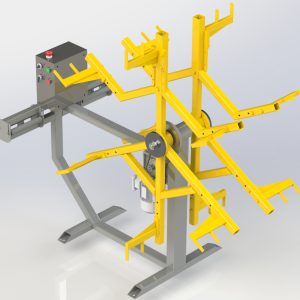
6. Svolgitore
- Funzione: Assicura lo svolgimento della rete per l'ulteriore lavorazione.
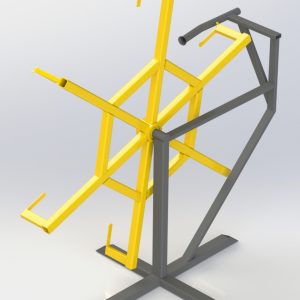
Prestazione
| Diametro nominale (mm) | Dimensione della maglia (mm) | Produttività (m/min) |
|---|---|---|
| 2 | 100x100 | 1.5 |
| 2 | 200x200 | 3 |
| 4 | 100x100 | 1 |
| 4 | 200x200 | 2 |
| 6 | 100x100 | 0.75 |
| 6 | 200x200 | 1.5 |
Specifiche tecniche del CT2
| Parametro | Valore |
|---|---|
| Diametro dell'asta (mm) | 2 - 6 |
| Dimensioni delle maglie (mm) | 50x50, 100x100, 200x200 |
| Dimensioni (LxWxH) | 25 m x 6,5 m x 2,5 m |
| Consumo energetico | 40 kW |
| Alimentazione elettrica | 380 V, 50 Hz |
| Peso dell'attrezzatura | 5000 kg |
| Larghezza della maglia | Fino a 2 metri |
La macchina CT M ST2-6 di Composite-Tech è un investimento per il tuo futuro, che ti consente di produrre reti in fibra di vetro di alta qualità, soddisfacendo le richieste dei clienti più esigenti e garantendo alti profitti alla tua attività.
Non perdere l'occasione di rendere la tua attività più redditizia con le tecnologie avanzate di Composite-Tech! Contattaci per saperne di più ed effettuare un ordine.

